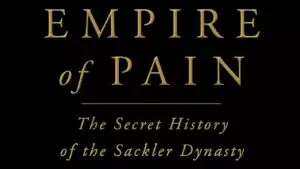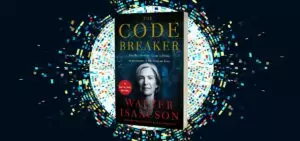By Austin Williams

✅ AI Essay Writer ✅ AI Detector ✅ Plagchecker ✅ Paraphraser
✅ Summarizer ✅ Citation Generator
The agonising and ultimately redemptive tale of the trapped Chilean miners captured the world’s hearts and headlines. At the time of writing, the 33rd and final miner has just been released into euphoria, and into the spotlight, from their underground entombment. Peter Stanford writing in the Independent said that: ‘It is a happy ending, yes, but more than that, it is a victory, on every level, for humanity’. This was certainly a story to celebrate in our bleak times. Speaking on Newsnight, former hostage John McCarthy said that there was something universal about the events that have unfolded over the previous two months. The rescue mission was one thing, but the morbid reality of their captivity—with the possibility that there might be no release (‘we were waiting to die’ said miner Richard Villaroel)—had also been pruriently captivating.
As we celebrate ‘Los 33’, our unholy fascination with underground interment continues with the inquest at the Royal Courts of Justice into the 7/7 bombings, replaying the terrifying ordeal of those trapped deep in the London Underground. These are ordinary people in extraordinarily horrific circumstances, with no visible means of escape.
Such intrigue also finds expression in fictionalised form. Emma Donoghue’s harrowing novel Room, shortlisted for the Man Booker, tells the story of a mother and daughter incarcerated in an underground chamber. Based on the appalling case of Josef Fritzl (the Austrian father to a trapped and sexually abused daughter), it conjures up the terrifying physical and psychological predicament of forced seclusion and overwhelming domination, from which there appears to be no escape. Rodrigo Cortés’ movie Buried—newly released (if you excuse the pun)—is a claustrophobic film about a man who wakes up to find he has been buried alive.
Whether there is a link between fiction and reality or not, all appear to be stories of humans triumphing over events that conspire to shroud humanity in darkness. Here people are confined in a potential death trap at the mercy of forces beyond their control. Each presents us with a horrifyingly inescapable prospect from which, in these versions, the ‘victim’ ultimately escapes (tragically, we forget those that never made it from the cellars of Belgian paedophile Marc Dutroux). The rescue is, after all, one heart-warming aspect to these appallingly tragic tales.
In general, what we admire is the redemptive resolution. The rescuers remind us of humanity’s care, selflessness, and fellow-feeling, while the trapped remind us of the indomitable strength of the human spirit. Though unimaginable adversity, people’s resilience, humane character, and lust for life shines through. These tales are about more than just survival—they display a desire to rage against the dying of the light.
One book above all others captures this essence. Natascha Kampuch’s 3,096 Days, is the story of her eight and a half years of captivity at the hands of Wolfgang Priklopil. It is, on one hand, a soul-wrenching story of a ten-year-old child snatched off the streets and thrown into a dungeon. On the other hand, it is a masterpiece of self-belief, determination, and will to live.
In terrifying scenes that defy the senses of the casual reader, one finds oneself reading the book as a novel—blasé passages lull the reader into a blinkered acceptance of what is going on. This, to a certain extent, is the point: Kampuch wants us to feel numbed—caught up in the narrative—for this is her way of explaining her predicament and her necessity to make a normality out of her utterly abnormal situation. Ever-present brutality jolts us back to the reality of her woeful condition. Locked in a cell, in pitch blackness (save for the relentlessly-timed electric light) she has to endure beatings, psychological torture, unbearable loneliness, and constant monitoring from the early years of her childhood until she matures into an adult.
In a fascinating thread that runs through the book, she equates her imprisonment to her period of adolescence—drawing parallels between the timescale of her captivity and the period when her autonomy as a child would have been subjugated to the authority of adults in the real world. As such, she makes a pledge to herself that she will escape when she is old enough. It is an utterly remarkable rationalisation of intent. It also answers her critics who still cannot believe that she would never have tried to escape even though Priklopil sometimes took her on trips into the outside world.
Her life, she explains, had centred on Priklopil for her formative years—and aside from the terror he held for her, he was also her only companion. She says: ‘The person who had stolen me, who took my family and my identity from me, became my family. I had no choice other than to accept him as such and I learned to derive happiness from his affection and repress all that was negative. Just like any child growing up in a dysfunctional family’. That said, she is wonderfully dismissive of claims that she is suffering from Stockholm Syndrome—the medical explanation of hostages’ sympathy for their captor. Kampuch has been the victim of a terrible crime, but she refuses to be ‘turned into a victim the second time’.
‘I had withstood all of Wolfgang Priklopil’s psychological garbage and dark fantasies, and had not allowed myself to be broken. Now I was out in the world, and that’s exactly what people wanted to see: a broken person who would never get back up again, who would always be dependent on help from others. But the moment I refused to bear that mark of Cain for the rest of my life, the mood turned.’
This book is Kampuch’s statement of intent. When she escaped, as promised, in 2006 at the age of 18, there was a similar response to that that greeted Los 33. But when she refused to play ball and be treated like ‘a broken girl in need of help’, she even received death threats. Unlike Los 33, she says people resented the fact that she had freed herself—that the social redemption that comes from a wide network of rescuers involved in a captive’s release did not exist in her case. She had freed herself. She suggests that because of this, many people started to suggest that she could not possibly have been held forcibly against her will. Her story was challenged, her accounts of suffering were dismissed and she was even seen to have been complicit in her own capture. This book is a touching, nuanced, and determined two fingers up to those rumour-mongers.
Rather than a self-indulgent cartharsis, it is a gauntlet slapped in the face of her detractors. By doing this, Kampusch is determined to create a future that will not be dictated by the accident—the tragedy—of her past.
While revolving around the vile and vicious actions of her abductor, Wolfgang Priklopil, the central story reflects beautifully on the human spirit, and, in particular, on Natascha Kampuch—who remains generous in victory. As such, it is a truly touching, well-written, and delicately-handled story. There are moments of self-deprecating humour and one often has to remind oneself of the nightmarish reality, although these lighter moments are the actual distractions that Kampusch introduced into her brutal world to keep herself sane.
As Luis Urzua, the last man pulled out of the mine in Chile’s Atacama desert said, ‘We had strength, we had spirit, we wanted to fight’. Natascha Kampusch was a terrified ten year old when she was pushed underground. She too, refused to be broken.
——————–
Written under a Creative Commons License, with edits: https://creativecommons.org/licenses/by/1.0/
Follow us on Reddit for more insights and updates.





Comments (0)
Welcome to A*Help comments!
We’re all about debate and discussion at A*Help.
We value the diverse opinions of users, so you may find points of view that you don’t agree with. And that’s cool. However, there are certain things we’re not OK with: attempts to manipulate our data in any way, for example, or the posting of discriminative, offensive, hateful, or disparaging material.